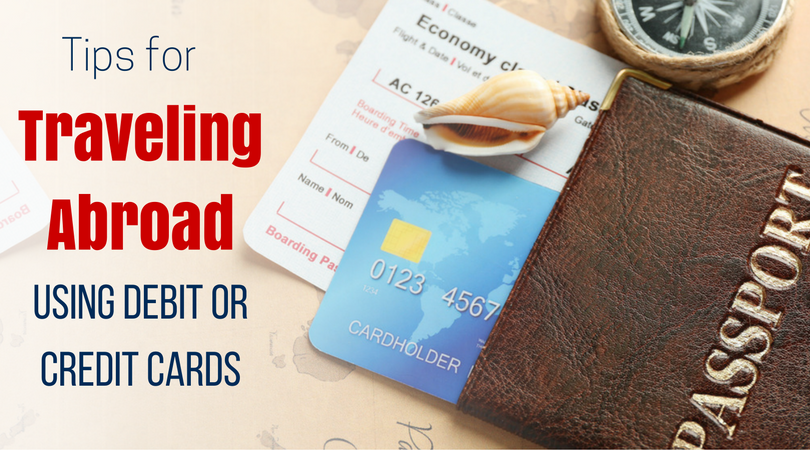
There are few things as mind-blowing as traveling abroad. It could be for work, vacation, visiting relatives or more. Prior to leaving, you may be concerned about dealing with finances in a foreign country. It can be challenging to access your money while abroad to pay for anything. The use of debit or credit cards when traveling abroad is possibly the most convenient way to manage your finances while on any trip. First, though, it’s important to understand everything that goes with it.
Traveling with Credit Cards
Travel experts recommend a person use their credit card when traveling abroad for large purchases. This includes hotel bills, meals in restaurants, airline tickets and more. The advantage to using a credit card is the purchases are exchanged at a rate based on the interbank exchange rate. This is considered the best rate a person can get for the exchange of currency. The conversion fee for purchases is often 1 percent when using a MasterCard or Visa card. There is usually an additional 2 percent for the financial institution. These fees are still less than what a person would receive if they paid to convert their own currency at a local currency change bureau. It pays to do some research when choosing a credit card to use while traveling. Some credit cards do not charge any type of foreign transaction fees, and these are great for using internationally.
Don’t put all your eggs in one basket, though…
It’s always important when traveling abroad to have a certain amount of cash available. There are stores, hotels as well as restaurants that do not accept credit cards. It is possible to get a cash advance abroad from an ATM using a credit card. When you do this, you will be paying finance charges set by the credit card company.
Traveling with Debit Cards
Using a debit card is another effective way to get money in the local currency. When making cash withdrawals using a debit card, you’ll get the same interbank exchange rates as when purchasing anything with a credit card. You’ll reliably find that there are ATMs conveniently located in any large city, airports and just about everywhere else! Using a debit card with an ATM is typically the most cost-effective way to get local currency. It’s a good idea to limit the number of times you use an ATM while abroad. With every cash withdrawal made in foreign currency; a conversion fee will be charged. There will typically also be a fee charged for using a foreign ATM. There may also be additional charges from the host financial institution as well as the financial institution that maintains the ATM. Do a little homework before your trip and it should be smooth sailing.
Paying With Local Currency
Individuals who use a debit or credit card abroad will have two options when it comes time to pay a retailer. Depending on the country, a person could pay in local currency or other acceptable currency such as the Euro. It is more cost effective in many situations for a person to pay in local currency. When they pay in local currency, try to hang on to your receipt or a record showing the amount paid in the local currency. That way, if you feel there is any discrepancy in terms of the cost or exchange rate, you’ve got proof of what happened.
Lookout for the Fees
When traveling abroad you will be paying a currency conversion fee each time you use your credit or debit card. This fee will also apply when you use a credit or debit card to get money from an ATM. It’s typically calculated as a percentage of the total amount of the transaction. It is also pretty common to have a minimum charge given for each transaction. Be aware that when using your card regularly, these small fees tend to rack up quickly.
Lost Or Stolen Cards
According to the laws of the United States, a person must report a lost or stolen ATM or credit card within two business days. If you do this, your liability is limited to $50. If you wait longer, your liability for unauthorized charges could amount to hundreds of dollars. Don’t wait! Call it in! (It’s also probably a good idea to save the “Lost card” phone number – from the back of your card – into your phone’s contact list, whether at home or abroad!)
If you’re planning a trip overseas, you should talk with a financial expert. Let’s talk about what you’ll need to ensure your trip is a dream come true, and discuss any ways in which we can help with your finances. Why not contact us today?



